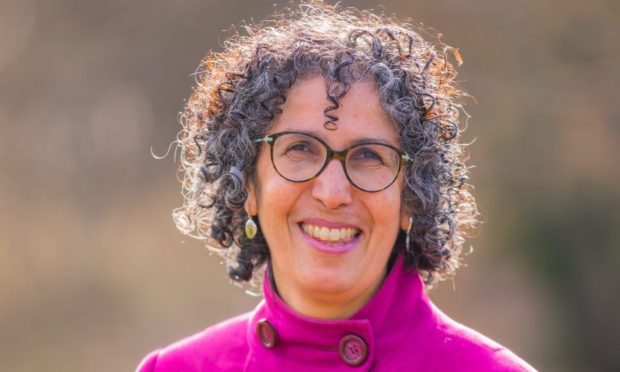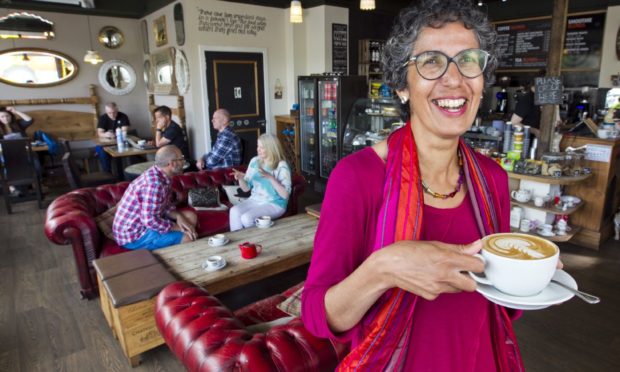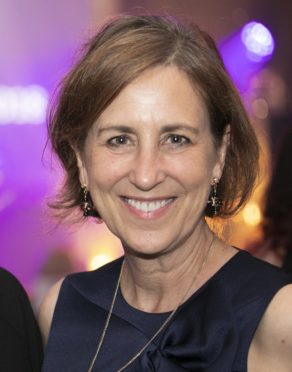When psychotherapist Rachel Weiss from Perth sat down to watch TV one evening she had no idea she’d soon be launching a movement helping people around the globe.
Now, as she gets set to launch her first virtual festival, she explains why she’s proud to be at the helm of an organisation empowering women.
Alongside her day job, Rachel created Menopause Cafes around the world. The community moved online due to Covid-19 and have created their first virtual festival #FlushFest, running on April 30 and May 1.
It includes comedy and cabaret as well as practical advice and discussion on menopause health and wellbeing.
“As I’ve gone through life, friends have usually told me their stories about the next stages of life, like getting married, having kids, empty nest and so on,” Rachel says. “But no one had mentioned the menopause.
“It affects about half the population and the other half who live and work with them – but nobody talks about it.
“I watched a programme by Kirsty Wark in February 2017 with my husband. I was thinking, I’m 50, menopause is going to happen sometime.
“That programme inspired me because I realised there were psychological and emotional symptoms, and a whole range of physical ones, which weren’t considered and nobody had told me about.
“I had already run death cafes, allowing people to talk about grief, so the programme about menopause motivated me to want to talk about this other taboo subject.”
‘Death cafes inspired us’
The late Jon Underwood was a huge inspiration for Rachel when setting up the cafes.
“He kindly let us borrow the entire model of his Death Cafe, which includes guidance for anyone who wants to hold their own cafe. It’s called a social franchise and anyone who wants to hold one has to sign up to our principles. We had to trademark Menopause Cafes to protect those principles and stop people using it to sell products.”
Rachel continues: “We advertised the first one on my business, Rowan Consultancy’s, Facebook page – and it became the most popular post ever. Two Perth women Lorna and Gayle said ‘we’ll help you’. And then I had to do it! We didn’t know if anyone would turn up. But actually people turned up and said ‘when is the next one?’.”
There have now been 560 events and more than 4700 people have attended. The areas of conversation include sleep, anxiety, HRT, and impact on relationships.
Rachel is motivated by the ever-growing community and how women, and men, support the movement.
“Motivation is having the idea and then daring to share it and have others help you make it happen. For me that support is a motivator. I’d like to make the world a better place and to keep learning new things, a mix of the altruistic and personal reward.”
Menopause cafes have continued during lockdowns as there have been pop-up online menopause events, “as often as our volunteers do them” says Rachel. Anyone in the world can sign up to the principles and volunteer to host a menopause cafe.
“Any given week there is one going on somewhere. Could be Nairobi, Kenya, Connecticut, wherever our volunteers want to host them,” Rachel explains.
“Kirsty kickstarted it with the programme but otherwise there was complete silence – even though half the population go through this!”
Rachel continues: “When I googled Menopause and Festival, nothing came up. Those words had never been used together because it was all doom and gloom. Classic menopause story is ‘it was awful, I took HRT and then my life changed so everyone else should take it’. That’s great but it’s not the only story.
“So we wanted to recognise this transition period in people’s lives. That’s what #FlushFest is. Particularly for professional women menopause can be difficult because we like to control things and it can be a shock to be in tears and not stop. It can be scary and some feel that is a weakness.”
‘Good enough is good enough!’
“One of the important things the wonderful committee and I have learned is that good enough is enough and better to try than not try at all!”
Rachel says shame, which leads to silence and secrecy, is a main issue facing women going through the menopause. By talking about it – to our GPs, bosses, family, partners – it can become a normal topic of conversation.
“Society is getting better at talking about taboo subjects. We can change the image of a middle-aged grey-haired woman with her head in her hands, when talking about menopause.
“We talk about pregnancy in our workplaces so why not menopause? We need to educate and introduce policy to help move that conversation along.
“FlushFest is just one piece of that jigsaw.”
Symptoms and treatments
The menopause is the time in a woman’s life when her periods stop and her ovaries lose their reproductive function, normally between the ages of 45 and 55.
Treatment options include diet changes as some women find healthier eating can help,
exercise, HRT and natural remedies.
#FlushFest2021 will run on April 30 and May 1. Book your tickets here.


